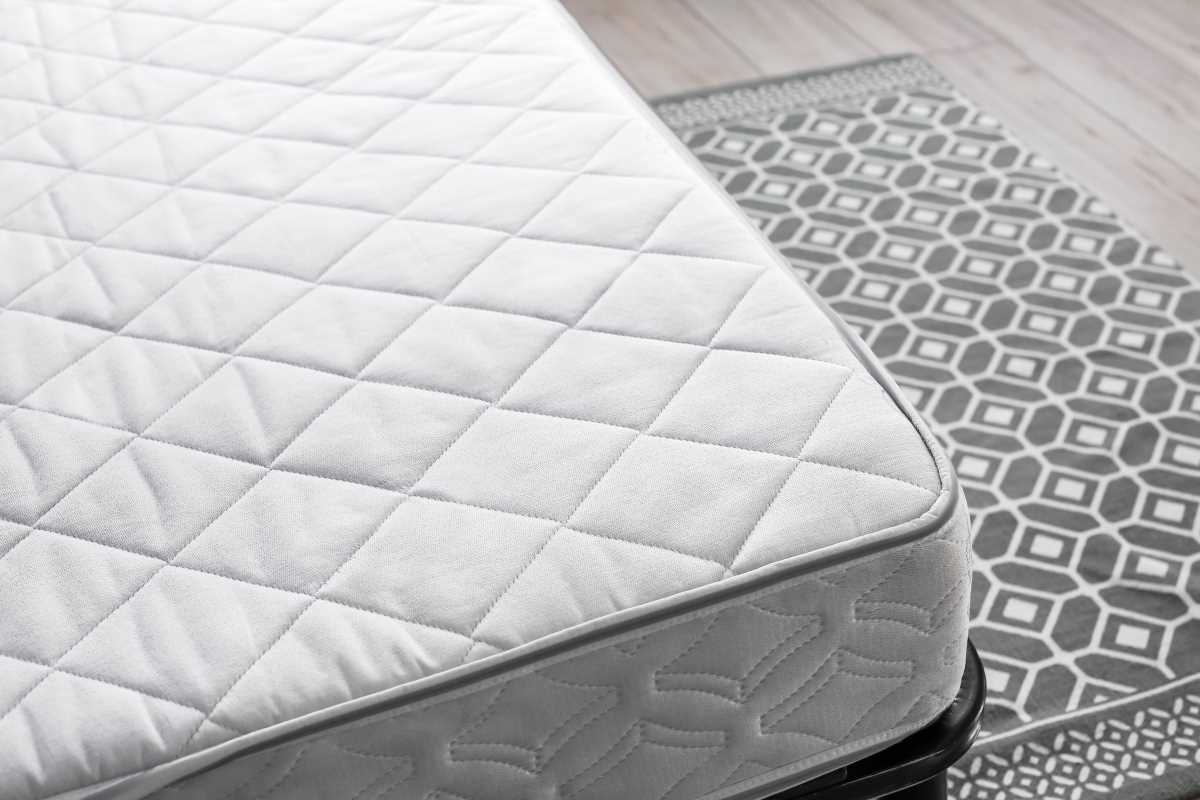A good night's sleep is one of the cornerstones of a healthy, vibrant life. We invest in skincare, nutrition, and exercise to feel and look our best, but one of the most critical factors is often overlooked: our mattress. The surface you spend roughly a third of your life on has a massive impact on your physical and mental well-being. An old or unsupportive mattress can do more than just cause a stiff back; it can subtly accelerate the aging process, affecting everything from your skin to your energy levels. We’re here to help you recognize the signs that your bed might be working against you. Let's explore how your mattress could be aging you and what you can do about it.
The Connection Between Sleep and Aging
Quality sleep is your body's prime time for repair and regeneration. During deep sleep, your body gets to work on a number of crucial processes. Your brain sorts and stores memories, your muscles repair themselves, and your body releases important hormones. One of the most significant of these is human growth hormone (HGH), which plays a vital role in maintaining healthy tissues and cells throughout your body.
When your sleep is frequently interrupted or you can't reach the deeper, more restorative stages of sleep, these processes are disrupted. A bad mattress is a common culprit behind poor sleep quality. It can cause you to toss and turn all night, searching for a comfortable position. This constant movement prevents you from settling into deep sleep, robbing your body of the chance to fully recharge. Over time, this chronic sleep deprivation can accelerate the aging process, both inside and out.
Physical Signs Your Mattress Is Taking a Toll
Your body often sends clear signals that your mattress is no longer serving you well. Paying attention to these physical clues is the first step toward reclaiming your restorative rest.
Chronic Aches and Pains
One of the most obvious signs of a worn-out mattress is waking up with aches and pains, particularly in your back, neck, and hips. A good mattress should provide proper spinal alignment, keeping your spine in a neutral position throughout the night. As a mattress ages, its supportive materials—like foam and springs—begin to break down.
This degradation leads to sagging in the areas that bear the most weight, like your hips and shoulders. A sagging mattress forces your spine into an unnatural curve, putting strain on your muscles and ligaments. You might find yourself waking up feeling stiff and sore, a feeling that often eases as you move around during the day. This chronic pain not only affects your quality of life but can also lead to long-term posture problems.
Increased Allergies and Skin Issues
Older mattresses can become a breeding ground for allergens. Over years of use, they accumulate dust mites, dead skin cells, sweat, and other debris. Dust mites are microscopic creatures that feed on dead skin cells, and their waste products are a common trigger for allergies.
Waking up with a stuffy nose, itchy eyes, or unexplained skin irritation could be a sign that your mattress is harboring these allergens. For those with asthma or eczema, an old mattress can worsen symptoms. Furthermore, the bacteria and oils that accumulate in your mattress can contribute to acne breakouts and other skin issues. A clean sleep environment is essential for both respiratory health and clear skin.
Premature Wrinkles and Sleep Lines
The position you sleep in, combined with the surface you sleep on, can affect your skin. A mattress that is too firm can put excess pressure on your face, especially for side and stomach sleepers. This compression can contribute to the formation of "sleep wrinkles" over time.
While these lines might fade during the day when you're younger, they can become more permanent as your skin loses elasticity with age. An unsupportive mattress that causes you to toss and turn also means more friction between your face and your pillowcase, which can further irritate the skin and contribute to premature signs of aging.
Mental and Cognitive Effects of a Bad Mattress
The impact of a poor mattress extends beyond the physical. Your cognitive function and mental well-being are deeply tied to the quality of your sleep.
Persistent Fatigue and Low Energy
You might be getting the recommended seven to nine hours of sleep, but if the quality is poor, you'll still wake up feeling tired. This is because your body isn't cycling through the sleep stages correctly. You spend more time in light sleep and less time in the restorative deep sleep and REM stages.
This persistent fatigue can make it difficult to concentrate, reduce your productivity, and leave you feeling drained throughout the day. It can feel like you’re constantly running on empty, a state that makes you feel older than your years. Chronic lack of energy is a telltale sign that your sleep environment needs an upgrade.
Mood Swings and Irritability
Sleep and mood are intricately linked. When you are sleep-deprived, the emotional centers of your brain are more reactive. This can make you more prone to irritability, mood swings, and stress. Small frustrations can feel overwhelming, and your overall sense of well-being can take a hit.
If you find yourself feeling consistently grumpy or on edge without a clear reason, your uncomfortable mattress could be the silent cause. Getting high-quality, restorative sleep is essential for emotional regulation and maintaining a positive outlook.
How to Assess Your Current Mattress
Not sure if your mattress is the problem? Here are a few practical ways to check its condition. We’ve got you covered with these simple steps.
- Check for Visible Signs of Wear: Look at your mattress without any bedding on it. Can you see a noticeable sag or indentation in the middle or where you typically sleep? Are there any lumps, bumps, or springs poking through? These are clear indicators that the mattress has lost its structural integrity.
- The Seven-Year Rule: Most high-quality mattresses are designed to last between seven and ten years. If your mattress is older than that, it's very likely that it is no longer providing the support you need, even if it looks okay on the surface. Keep track of when you bought it.
- Listen for Noises: A healthy mattress should be quiet. If you hear creaking, squeaking, or popping sounds from the springs when you move around, it's a sign that the coils are old and worn out.
- Sleep Elsewhere for Comparison: One of the best ways to test your mattress is to sleep somewhere else for a night or two, like in a guest room or a hotel. If you find that you sleep better and wake up with fewer aches and pains, it's a strong sign that your mattress at home is the issue.
Choosing a Mattress That Supports Healthy Aging
Investing in a new mattress is an investment in your health. When it's time for an upgrade, look for one that provides both comfort and support.
- Consider Your Sleep Position: Your ideal mattress often depends on how you sleep. Side sleepers typically need a softer mattress to cushion their shoulders and hips, while back and stomach sleepers often benefit from a firmer surface to keep their spine aligned.
- Materials Matter: Memory foam mattresses are excellent for pressure relief, while innerspring mattresses offer more bounce and airflow. Hybrid models combine both, offering a great balance of support and comfort.
- Don't Forget a Protector: Once you have your new mattress, protect your investment with a high-quality mattress protector. This will shield it from spills, sweat, dust mites, and allergens, extending its lifespan and keeping your sleep environment clean and healthy.
 (Image via
(Image via





